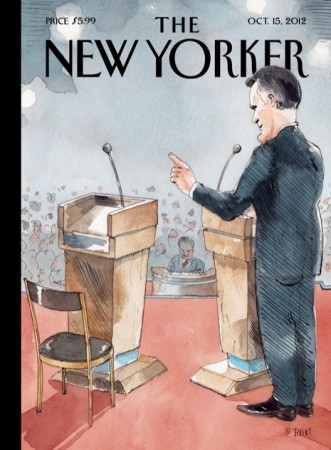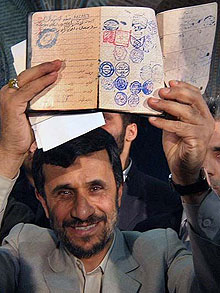I have long read Michael J Totten and he is, in my opinion, the best person to explain the Middle East to Americans. Today, he has a long column on the Middle East which any thinking person should read to understand where we are right now.
If you read nothing else of this column, please read this. It explains so much. It is an interview of a young Israeli PhD scholar of middle east politics.
Jonathan Spyer: And what they have to face up to now—and you know this very well—is that the three most powerful countries in the Middle East are not Arab.
MJT: Yes.
Jonathan Spyer: Israel, Turkey, and Iran. This is difficult for Arabs to deal with.
MJT: Many have a hard time even admitting it. I pointed this out years ago and got all kinds of grief in my inbox from Arabs who said I had no idea what I was talking about.
Jonathan Spyer: I’m sure.
MJT: They said I’m a stupid American who knows nothing of the Middle East, but they’re in denial. The only Arab country calling shots right now is Syria, and that’s only because Bashar Assad is a sidekick of the Persians.
Jonathan Spyer: A Palestinian friend of mine just the other day was telling me how Turkey and Iran are competing with each other to be the standard bearer of the Palestinian cause. Iran, with its sponsorship of Hamas and Hezbollah, and Turkey, with its flotillas, are the two countries with all the creative ideas. What do the Arab states have next to that? Nothing. Arabism’s flagship cause is championed by two non-Arab states.
How Syria fits into all this is one of the biggest divides here in Israel. There are those in the defense establishment who believe Assad’s championship of the resistance is entirely cynical and instrumental, and they want to pry him away from Iran.
MJT: His foreign policy is just instrumental and cynical, but I don’t believe for a minute he can be pried away from Iran.
Jonathan Spyer: I don’t either. And I’m glad that the people around the prime minister don’t buy it.
MJT: How do you know they don’t buy it?
Jonathan Spyer: Because I know some of them. The people around Netanyahu don’t believe this is possible.
MJT: I’m glad to hear that, because I’ve met lots of Israelis who do. And I think they’re crazy to think that. A lot of Israelis simply do not understand Syria.
Jonathan Spyer: Absolutely. They aren’t naïve people by any means. On the contrary. But they find it very hard to except the irrational and ideological elements in Middle East politics. They themselves are not irrational or ideological. They’re extremely rational, and they assume everyone else is, as well. And so they make massive errors.
MJT: It’s a common problem all over the world. Lots of people assume everyone else is just like themselves. Americans often assume most people in the Arab world want what we have. I’ve met plenty of Arabs who believe the United States is involved in these dark conspiracies like their own governments are.
Jonathan Spyer: Yes. Arabs often think they’re being mature and sophisticated by talking this way, but in order to have a proper, grown-up, three-dimensional understanding of American foreign policy you need to understand that the idea of America is one of the things that informs American foreign policy. If you don’t understand that, you won’t be able to understand what the U.S. is doing and why.
And some of the planners and thinkers here in Israel still believe that everyone at the end of the day wants the same things they want. That isn’t the case, and you will make grave errors if you assume that it is. I’m not a fan of Netanyahu’s prime ministership down the line, but he does have people around him who understand the role ideas play in this region. It stops us from making the kinds of errors that, for example, Ehud Barak made in 2000.
MJT: I thought Barak’s withdrawal of Israeli troops from Lebanon was the right thing to do, and so was offering Arafat a Palestinian state. I supported both, and I still do even in hindsight, but we have to be honest about the results of those policies. War followed both, and Israelis will have to be extremely careful about withdrawing from the West Bank and the eastern half of Jerusalem.
Jonathan Spyer: Absolutely. Many people still say we all know what the final settlement is going to look like, so we just need to get the two sides together and work it out. To that I say, “No. You don’t know what the final status is going to look like. The final status you have in mind is what you came up with by negotiating with yourself.”
I was an early skeptic of the Oslo peace process.
MJT: Why? I wasn’t, but you were right and I was wrong. What did you see then that I didn’t?
Jonathan Spyer: We all get things wrong in the Middle East, but that time I was right. I’m not saying I was some kind of genius—I was just a kid—but I did manage to call that one for whatever it’s worth.
All you had to do at the time was be interested enough in Arab political culture to listen carefully to what the other side said. That’s all it took. Once you did that, you’d have to be a moron not to see what was coming. Most people weren’t doing that.
Hezbollah erected a billboard on the border facing south into Israel showing a severed head being held by its hair. Text in Hebrew says, Sharon, don’t forget. Your soldiers are still in Lebanon.
MJT: It’s the same in the U.S. today. Too many people don’t want to listen to what’s being said in the Arab world. A lot of it is deeply disturbing. I could be wrong, and I don’t like to psychoanalyze people, but I think that’s the problem. They’re afraid of the implications of all this crazy talk in the Middle East. So they pretend they don’t hear it, they explain it away, or they say it’s not serious.
Jonathan Spyer: I think that’s right.
MJT: I don’t like what I often hear either, and I don’t know what we should do about it, but I’m aware of it, and it’s there whether I like it or not.
Jonathan Spyer: That’s the bottom line. And from there you have to build a rational policy. You may not like it, but what else can you do?
Israelis were exhausted by a half-century of war before the peace process started. Every family in the country was shaped by it. There was an immense longing in the 1990s for peace, normalcy, and the good life. We had an intense will and longing for that. So when the Oslo crowd came to town and said, “You can be born again, you can have peace with the Arabs,” people bought into it.
They were idealists, and they were rationalists. If a note of triumphalism creeps into my voice, it’s only because I remember how arrogant they were during the 1990s when they thought they were right. They were extremely contemptuous toward everyone at the time who was trying to warn them. We were described as anachronisms from a different century.
MJT: That’s what I thought at the time.
Jonathan Spyer: Okay. Fine. It’s okay.
MJT: I was young. I wasn’t writing about the Middle East then.
Jonathan Spyer: Sure. It’s fine. Everyone gets this place wrong.
MJT: No one has ever been right consistently. I don’t think it’s possible.
Jonathan Spyer: It’s not.
MJT: This place is too weird.
Jonathan Spyer: [Laughs.] Yeah. It is.
MJT: It took me years to understand how this place works just on the most basic level because it’s so different from the part of the world I grew up in. I first had to stop assuming Arabs think like Americans. Then I had to learn how they think differently from Americans. I still don’t fully understand them, and I probably never will.
Jonathan Spyer: It’s hard. I used to try to figure it out by extrapolating from the Jewish experience, but it doesn’t work. Their response to events is totally different. It’s useless. You have to throw this sort of thinking into the trash or you can’t understand anything.
MJT: When the U.S. went into Iraq, I thought Iraqis would react the way I would have if I were Iraqi.
Jonathan Spyer: Sure.
MJT: But they didn’t. But I wasn’t only projecting. I knew they weren’t exactly like me. They’re Iraqis. I guess I expected the Arabs of Iraq to react the way the Kurds of Iraq did, and the Kurds reacted the way I would have reacted. But the Arab world isn’t America, and it is not Kurdistan.
MJT: The Arab world has its own political culture, and it’s not like the political culture I know, or even like other Middle Eastern political cultures.
If the Palestinians had a Western political culture, the problem here could be resolved in ten minutes. If you Israelis were dealing with Canadians instead of Palestinians, you would have had peace a long time ago. And if the Palestinians were dealing with Canadians instead of Israelis, there would still be a conflict.
Jonathan Spyer: That’s exactly right. And that’s why it’s so frustrating sometimes when people say, “If only the two sides could sit down and talk.”
This is why the people who worry that the GZM controversy will affect how Muslims think about Americans, are foolish. The GZM controversy is a pimple on the ass of the issues between Islam and the West. The sooner we understand this, the less chance of catastrophic error.


